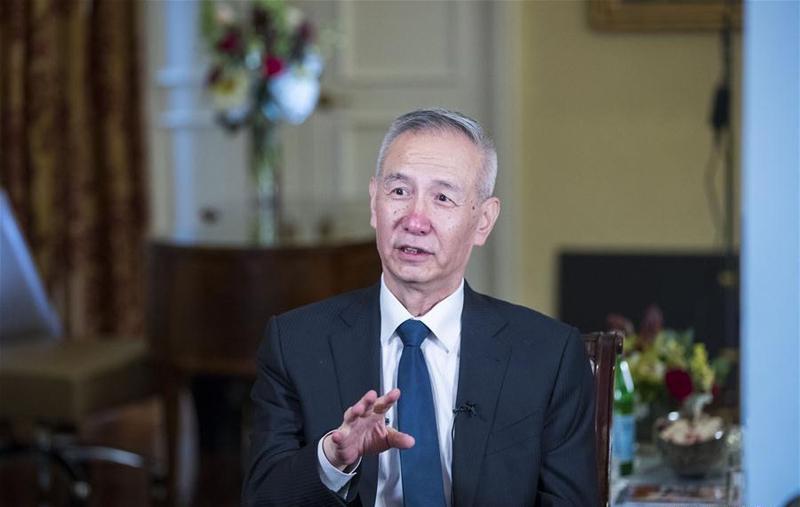Media Report

- The New York Times reports, "Federal prosecutors in Seattle are investigating Huawei, the Chinese technology giant, on allegations of intellectual property theft, according to two people familiar with the case. The criminal investigation is related to a civil suit between Huawei, one of the world's largest telecommunications equipment and smartphone makers, and the telecom provider T-Mobile, according to the two people, who requested anonymity because they were discussing an active investigation. In that civil case, filed in 2014, Huawei was accused of stealing intellectual property related to a robot that T-Mobile used to diagnose quality control issues in mobile phones. A jury found Huawei guilty in May 2017. The criminal inquiry is looking at some of the same issues as the civil case, according to one of the people with knowledge of the investigation."
- TIME reports, "China's economy czar, Vice Premier Liu He, will visit Washington on Jan. 30-31 for talks aimed at ending a costly tariff war over U.S. complaints about Beijing's technology ambitions. The announcement Thursday that the official in charge of the Chinese side of the negotiations will participate in person is a possible sign of progress following talks in Beijing this month between lower-level officials. Liu will visit Washington at the invitation of the U.S. Trade Representative, Robert Lighthizer, the Ministry of Commerce said. That suggested Lighthizer also might participate, a step economists said earlier would be a sign of determination to reach a settlement."
- Reuters reports, "China's economy is expected to cool further this year as domestic demand weakens and exports are hit by U.S. tariffs, a Reuters poll showed on Thursday, reinforcing views Beijing will need to roll out more stimulus measures. The world's second-largest economy got off to a strong start in 2018, but pressure soon built as a crackdown on riskier lending pushed up borrowing costs and made it harder for smaller companies to get funding, spurring record bond defaults. At the same time, the escalating dispute with the United States saw both sides slap tariffs on each other's goods, disrupting China's trade sector and weighing on Chinese business and consumer confidence. Slowing demand global is heightening those export pressures."
Calendar
- 2019-01-16 Tense Relations Between China and Canada as Trudeau Criticizes Canadian Citizen's Death Sentence
- 2019-01-15 Huawei CEO says company doesn’t spy for China and praises Trump in rare appearance
- 2019-01-14 China sentences Canadian man to death in drug case linked to Huawei row
- 2019-01-13 Clouds loom over global business as Chinese economy falters
- 2019-01-11 China's Liu Expected to Visit U.S. Soon for Trade Talks, Mnuchin Says
- 2019-01-10 U.S.-North Korea Summit Looks Imminent, South Korean Leader Says
- 2019-01-09 Talks to End U.S.-China Trade War Now Shift to Make-or-Break Rounds
- 2019-01-08 Xi Jinping’s top economic aide unexpectedly attends China-US talks
- 2018-12-05 China Breaks Its Silence on 90-Day U.S. Tariff Truce
- 2018-12-04 U.S. stocks are battered in one of their worst days of 2018 as U.S.-China trade deal appears to sputter
News
- The New York Times Huawei Said to Be Under U.S. Investigation in Trade-Secrets Case
- TIME China's Economy Czar Is Coming to Washington for Trade Talks
- Reuters U.S. legislation steps up pressure on Huawei and ZTE, China calls it 'hysteria'
- CNBC Chinese unemployment worries are growing as Beijing beefs up stimulus
- The Wall Street Journal Trade War Tops Global Risks for Business Leaders
- CNBC China goes all out to boost its economy during trade talks, while the effect of US stimulus is fading
- The BBC Oxford University suspends Huawei donations and sponsorships
- The New York Times Philippines Should Take Over Shipyard to Keep It From Chinese, Officials Say
- CNBC China's soybean imports show American farmers have more to fear than the trade war
- Bloomberg Four Chinese Tycoons Just Transferred $17 Billion to Trusts
- Reuters China's growth set to slow to 6.3 percent in 2019, more stimulus seen: Reuters poll
- CNN China's first plant to grow on the moon is already dead
- BBC Cai Dongjia: China's 'godfather of crystal meth' executed
Commentary
- CNN Canadian's death sentence leaves Beijing and Ottawa trapped in a crisis
- The Hill Temporary lull doesn't heal the wounds of trade war
- Bloomberg The U.S. Case Against Huawei Is Getting Real
- The Washington Post How China is using a death sentence to manipulate Canada
- Bloomberg Trump's Tariffs Are Producing Billions, But China Isn't Paying
- The New York Times China's Looming Crisis: A Shrinking Population
- The Washington Post Why it's so hard for the U.S. to have a coherent China policy
- The Washington Examiner Confront China with pressure, not threats of war, over Taiwan
- Bloomberg Forget the Trade War. China Is Already in Crisis
- CNN China won't unleash 'runaway stimulus' to revive the economy
